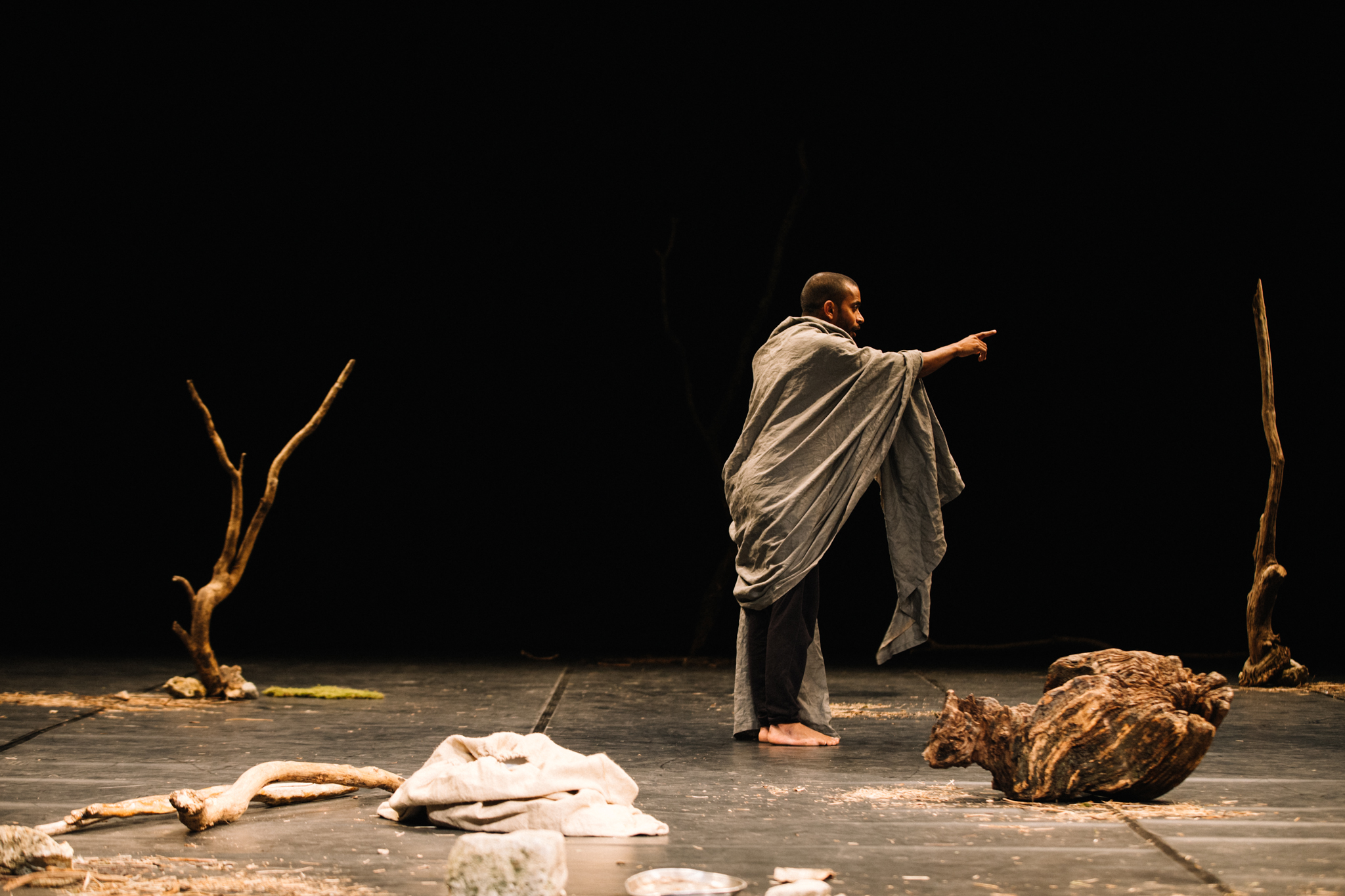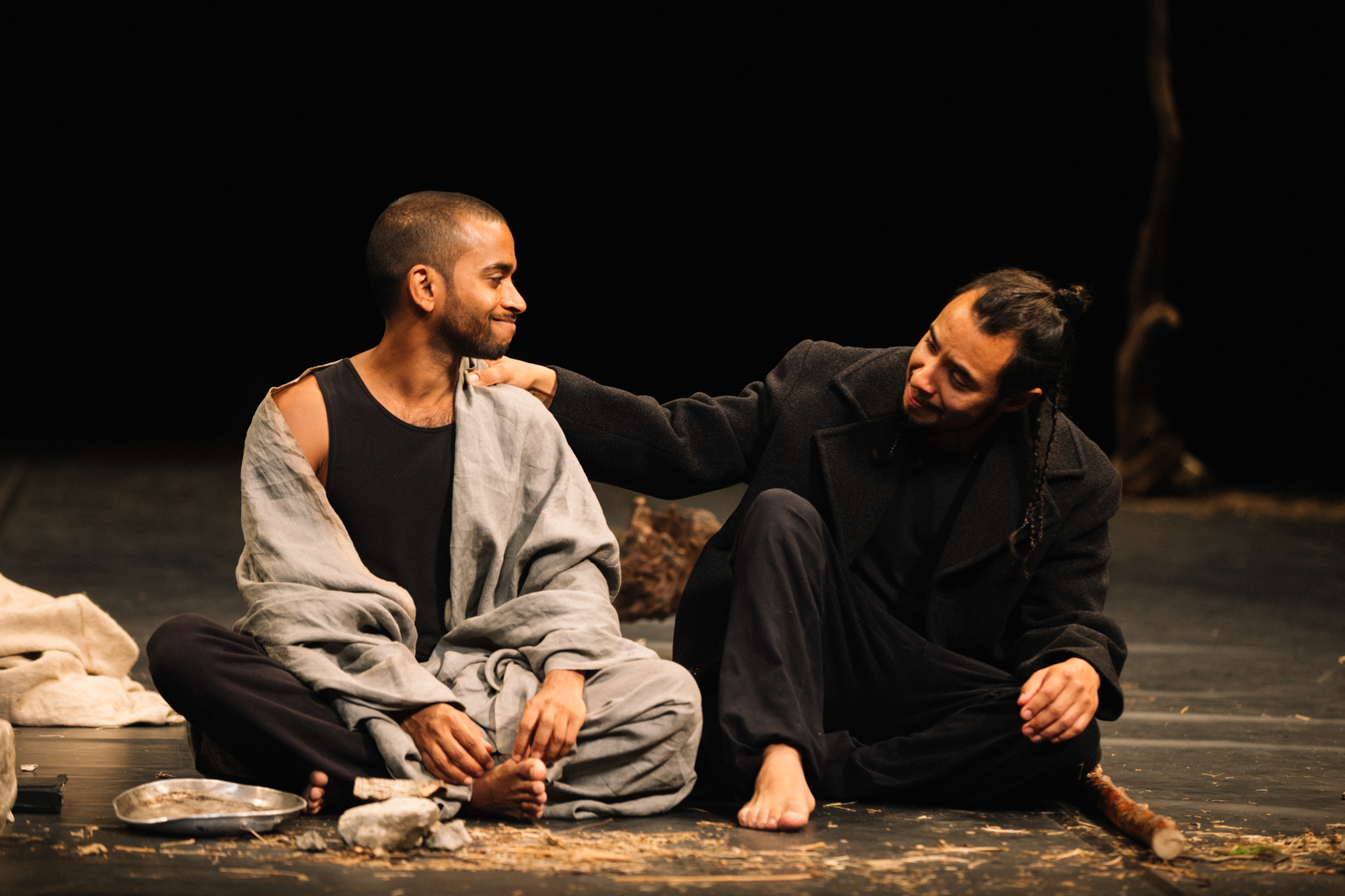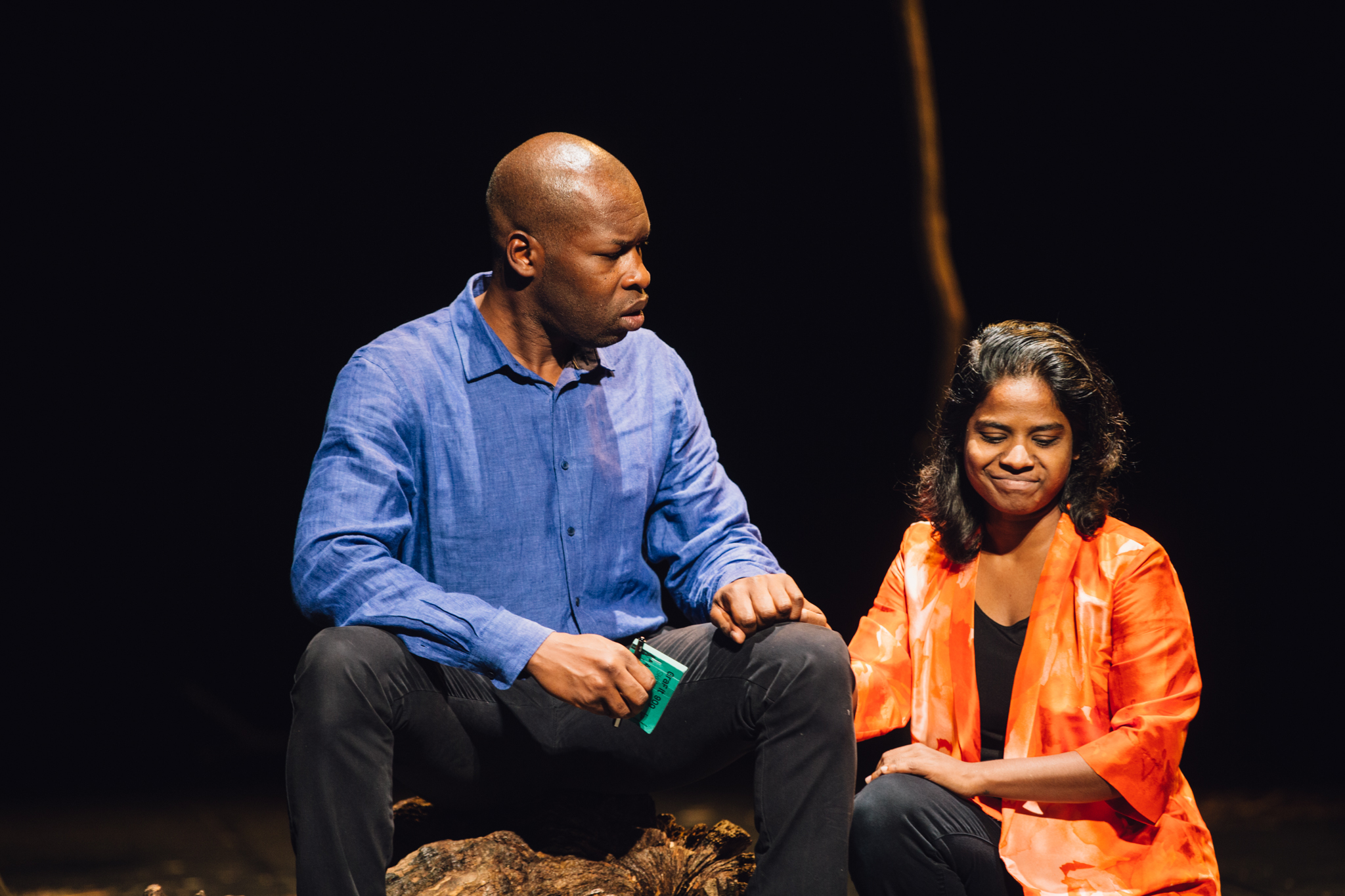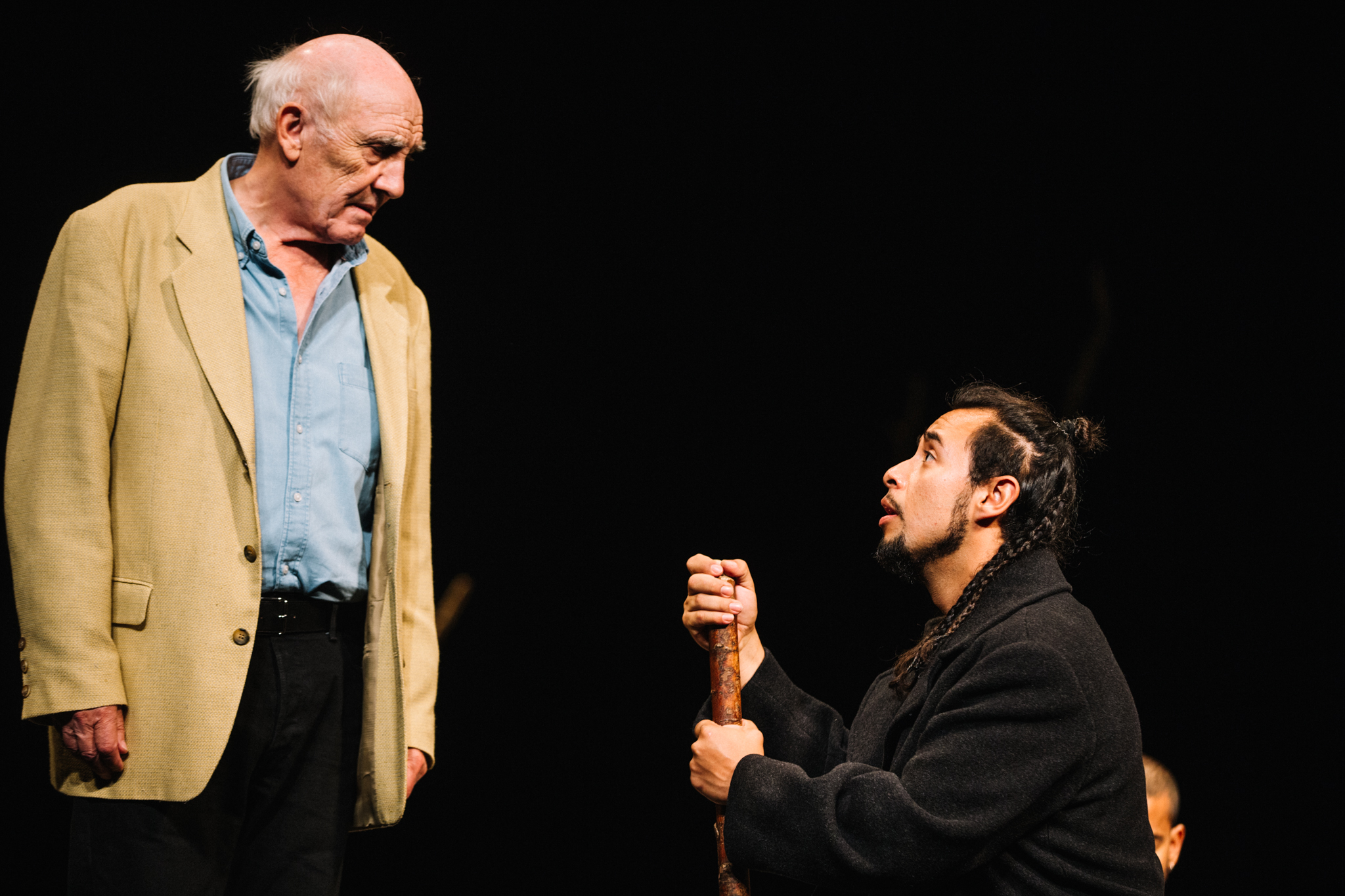It’s difficult to know where to begin with this play, so I shall start with the facts.
Set in a ‘far off land’, it starts – and ends – with a foreign narrator (Donald Sumpter) telling the story of the titular prisoner. In-between, we are told – and are shown aspects of – a tale dealing with incest, murder, physical mutilation, prolonged self-harm, spiritual rebirth and redemption. If it sounds like a riveting evening of stage (d) entertainment, it’s not. This production eschews the familiar three-act formula, and makes very few concessions to an audience’s need for familiar theatrical devices (e.g. comedy, pathos, music, sets, etc.), or entertainment (e.g. plot twists, suspense, shocks, thrills, etc.).
Hiran Abeysekera performs the main character well. His parkour skills are impressive.
To cut a long story short, Mavuso (Hiran Abeysekera) has killed his own father, after said pater familias has caught him in bed with his sister Nadia (Kalieaswari Srinivasan). This all takes place off-stage and is related to Uncle Ezekiel (Hervé Goffings) by Nadia. Thereafter, is a tale of physical torture, incarceration, and cruel and unusual punishment, as Mavuso is consigned to an indeterminate sentence consisting of facing – and staring at – the walls of a prison…from the outside.t is an intriguing premise but – much like Mavuso himself – it goes nowhere.
Despite entreaties from Nadia, some bored prison guards, an inquisitive villager, and the aforementioned narrator, Mavuso refuses to end his sentence until he adequately ‘repairs’. An opportunity for emotional and moral depth is skipped over when Mavuso asks his Uncle whether he knew that his dead brother – Mavuso’s father – had been raping Nadia since she was aged 13. When he indicates that he had, indeed, known, Mavuso asks whether this was right; to which the pious uncle replies: “I loved him – I cannot judge him”.Nadia does escape ‘overseas’ – albeit without her daughter – and trains to be a doctor, before returning to ‘help the poor’ within the local community.
Again, this happens offstage – presumably because it’s not about her survival as much as it it’s about ‘Ezekiel’s story of vengeance’, and ‘Mavuso’s tale of atonement’. How patriarchal.
Hiran Abeysekera performs the main character well. His shifts from each emotional state sometimes feel a little forced, but his silences are suitably enigmatic. Also, his parkour skills – when the theatre circle is briefly substituted for a forest’s tree – are impressive. However, just like the rest of the cast, he is undone by an unengaging script, flat direction, and a story that seems – despite its philosophical scope and era-spanning timeframe – too small for this space.
By the end, it was I who felt like ‘the prisoner’.
But perhaps that was the desired effect: to give the audience – and critics – a first-hand glimpse into the ‘need to repair through endless repetition, incessant hardship, self-reflection, deep contemplation and a slavish adherence to the singular task at hand’.































